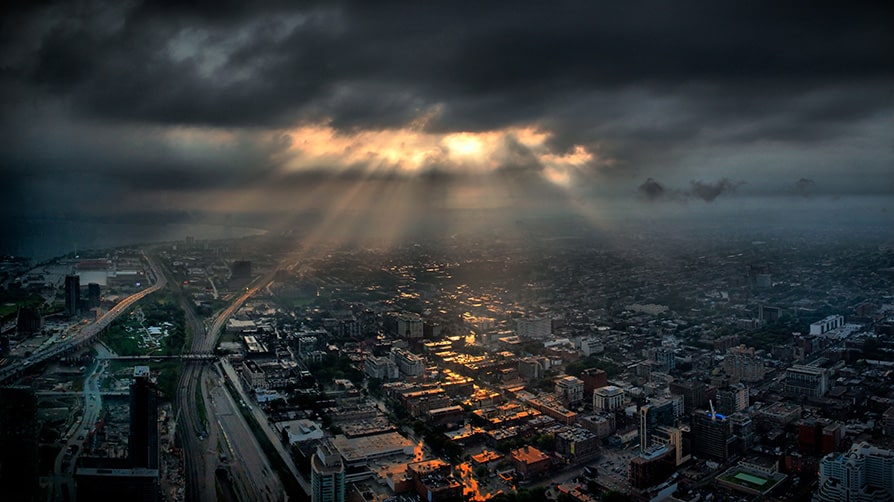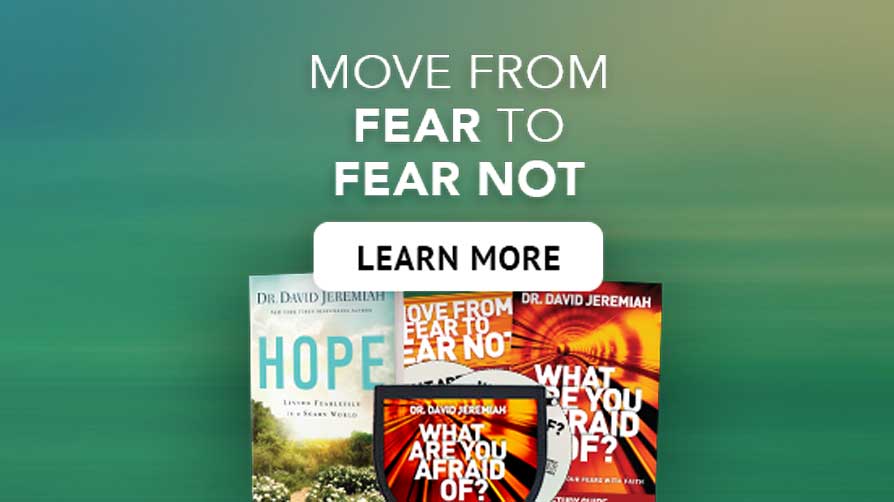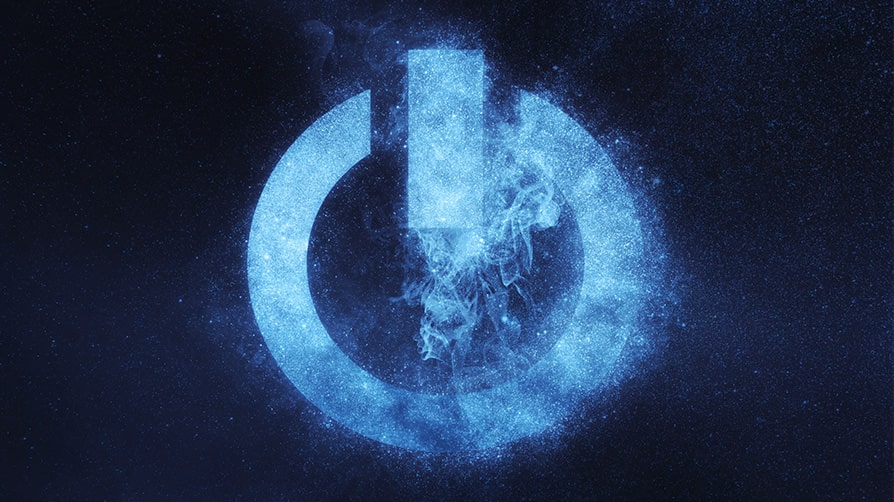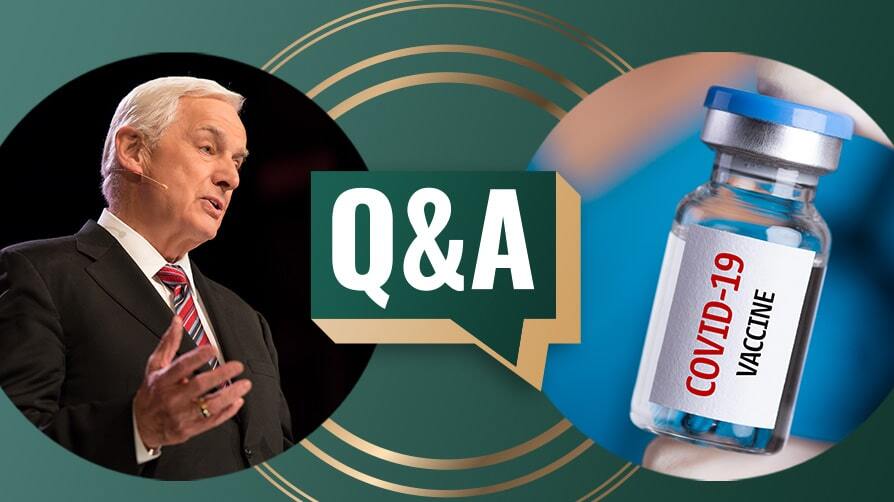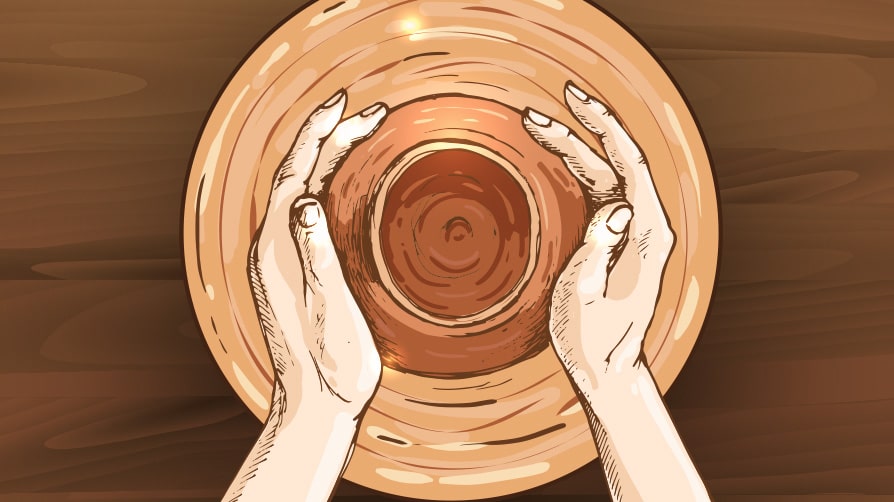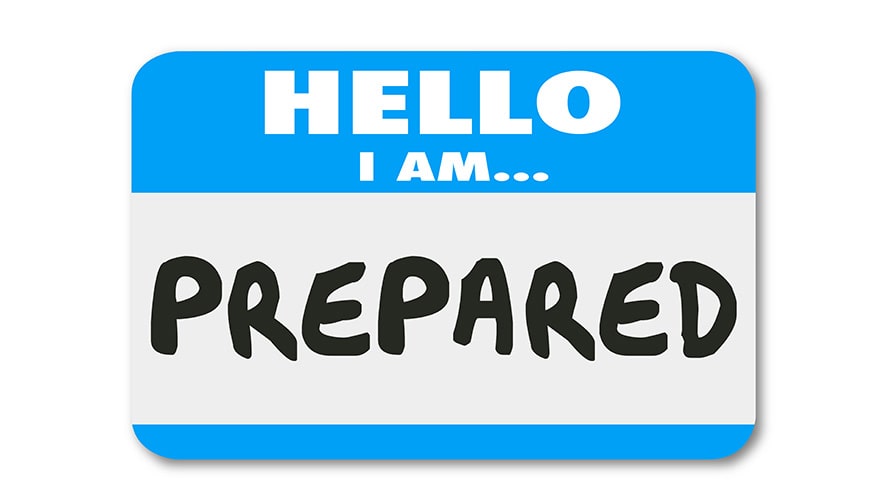Should We Be Worried About Signs of the End Times?
Know how to survive a dirty bomb? How to start a fire using a glass bottle? How to preserve food? Have you stockpiled cans of beans and tins of meat? Do you own a solar–powered flashlight? How about your contact list—do you have a hard copy in case our electronics crash? What about a first aid kit and toolbox? Have you studied wild mushrooms and edible insects? Know how to waterproof your matches?
Lots of people are thinking about these things nowadays. The Atlantic carried an article about a growing number of survivalists and “preppers” who are using Internet sites to swap how–to tips on building bomb shelters, storing food, stockpiling supplies, cleaning weapons, and providing emergency medical care in the absence of doctors.1
Some people take it further. The newspaper, The Daily Mail, reported on a Colorado family who has spent vast amounts of money and time preparing for a coming day when “suddenly, and completely without warning” the world will experience “a total blackout—no electricity, no mobile phones, no banks, no internet, no TV, no emergency services. Nothing.” This family has stashed away so much that it took fifteen people over six hours to move it all from the basement to the lawn for a photograph. There were drums of food and gallons of water. They had a solar oven, a generator, a propane burner, a water filtration device, hand warmers, surgical masks, weapons, grills, backpacks, solar panels, and, of course, lots of blankets.
According to the news source, it’s all in preparation for a day when the economy will buckle, the world will lose power and energy, communications will go dark, and society will collapse in chaos with mass riots and warfare. The article reported, “It’s estimated there are three million preppers in the United States alone, and the number is rapidly rising.”2
Our Understandable Anxiety
I can understand the alarm. Both Christians and non–Christians are preoccupied with the end of the world. In pop culture, this is reflected in doomsday movies and television series. In politics, it’s seen in the growing disillusionment and despair of the electorate. In economic terms, it’s reflected in a multibillion–dollar apocalypse–survival industry. Our world is shuddering with conflicts in the Middle East, plagues and infectious diseases, cyber warfare, and the proliferation of destructive chemical and biological and nuclear weapons. The global economy is hanging by a thread, and the foundations of morality are collapsing like a suspension bridge. We are living in the last days against the buildup of the Rapture of the Church and the backdrop of the Great Tribulation. Everyone should take reasonable precautions and be as prepared as possible for the coming days.
But there’s a balance. It’s easy to look at today’s world and feel troubled. Many Christians are plagued with worry, fear, and doubt. There’s a natural sense of fatalism and defeat as we look at the turbulent times around us. But remember, “God has not given us a spirit of fear, but of power and of love and of a sound mind” (2 Timothy 1:7). The Bible says, “The fear of man brings a snare, but whoever trusts in the Lord shall be safe” (Proverbs 29:25).
Our Lord doesn’t want us to live in anguish or anxiety. Instead, this is a moment to remember Who is in charge! Perhaps for you, today is the day to trust God.
Our Source of Confidence
This is the central message of Psalm 11, which begins with King David affirming his confidence in God: “In the Lord I put my trust; how can you say to my soul, ‘Flee as a bird to your mountain?’ ”
Someone in David’s life was telling him to flee. Someone—perhaps his wife, son, friend, or counselor—was alarmed. According to this advisor, the foundations were falling, so what could the righteous do? The future was pointless. Survival was nearly hopeless. The best advice was to flee.
Psalm 11 was David’s response. Paraphrased in modern terms, this is what King David said in Psalm 11:1–4:
I have put my trust in the Lord, so how can you advise me to flee like a bird to my mountain? How can you tell me the wicked will kill me with their bows and arrows? How can you suggest the foundations are destroyed and there is nothing the righteous can do? Don’t you know who is in charge? The Lord is still in His holy temple. The Lord is on His heavenly throne. His eyes miss nothing.
When you get a chance, read Psalm 11 for yourself, and decide for yourself if this paraphrase is a balanced interpretation of what David was saying. Psalm 11 is the message we need to embrace in these days. The foundations may seem to be crumbling, the wicked may be stringing their bows, and the times may be drawing to a close, but if our faith is in the Lord, there is no need to panic. Today is the day to trust Him who is in His holy temple. He is still on His heavenly throne, and the Lord yet reigns.
Our Blessing and Protection
Look at verse 4 again: “The Lord is in His holy temple, the Lord’s throne is in heaven” (emphasis added). The first part of the verse speaks of God as a Priest in His temple; the second part speaks of God as a King on His throne. As a Priest, He sanctifies and blesses us. As a King, He protects us and causes all things to conform to His rule and reign. Our God is the everlasting God, and He will reign forever. Let the foundations collapse and the earth wobble in its orbit. Watch as the ungodly boast. Nothing changes the fact that our King and Priest rules, reigns, and intercedes according to an overriding plan.
Yes, the Lord is in His holy temple and on His heavenly throne. He surrounds us with His grace. In His timing, He’ll take us to be with Himself. In the fullness of time, He will return just as the Bible predicts in Revelation 19: “Now I saw heaven opened, and behold, a white horse. And He who sat on him was called Faithful and True, and in righteousness He judges and makes war. His eyes were like a flame of fire, and on His head were many crowns. … And He has on His robe and on His thigh a name written: KING OF KINGS AND LORD OF LORDS” (verses 11–16).
Until then we trust Him. Otherwise we’ll live in defeat, worried every morning, fretting every night, and haunted by each headline. How much better to remember Who is in control of politics, plagues, and the princes of the earth! How much better to say, “In the Lord I put my trust; how can you say to my soul, ‘Flee as a bird to your mountain?’”
It’s good to be prepared, and we should take every sensible precaution in these evil days. But our true deliverance is in the King of kings and Lord of lords. God is in control, and nothing will happen without His permission.
Our Future Hope
If you’re worried about the times we’re in, study God’s throne in the Bible. Read about Isaiah’s glimpse of the throne in Isaiah 6, Ezekiel’s depiction of the throne in Ezekiel 1, and the apostle John’s description of it in Revelation 1, 4, 5, and 19. Spend time in the Throne Room of Psalms 96–99, where the recurring theme is “The Lord reigns.”
Then read Psalm 11 again. That’s my prescription.
Be prepared, but don’t be panicked. Rely on God in the midst of turbulent times, and look upward. All previous generations of Christians have expected Christ to come in their own day. Even during the lifetime of Paul, New Testament believers lived in expectation of His swift return. So do we! Our lives are full of anticipation, though we don’t know whether His return will be today, tomorrow, next year, or next century. One thing we do know—His coming is closer than it’s ever been; and when we look at world conditions, we feel we have better reasons than prior generations to say: “Perhaps today!”
PERHAPS TODAY is the day to remember Him who is in His temple and on His throne. PERHAPS TODAY is the day to trust Him.
Sources:
1Colette Shade, “Survivalists Are Using Pinterest to Prepare for the Apocalypse,” The Atlantic, May 15, 2014.
2Ryan Herman, “Ready for the apocalypse!” MailOnline, March 23, 2013.
I need help

Your response has been received, and we will be praying for you.
Look for answers to some of the most common questions in the weeks ahead.
